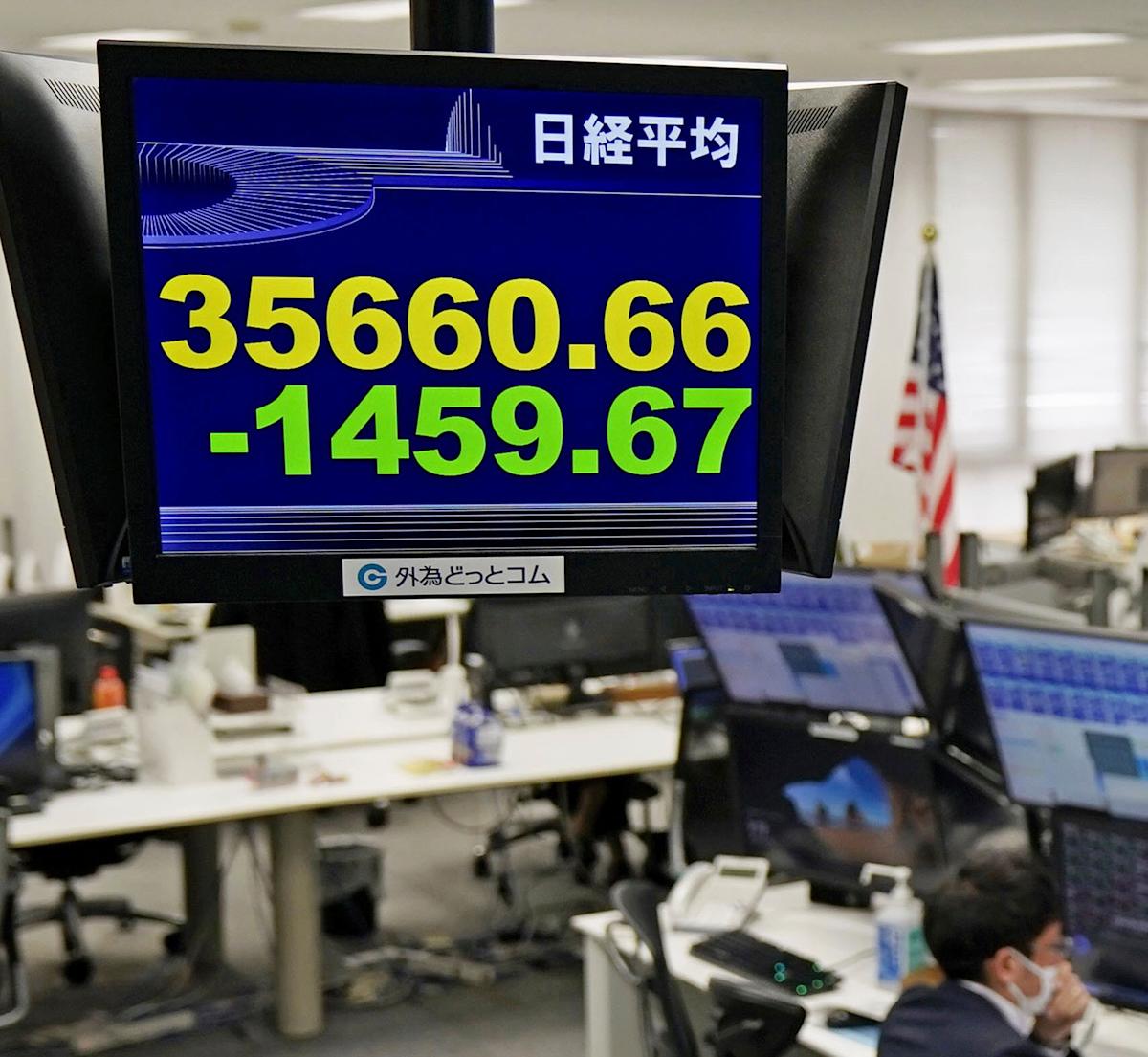Market Mayhem: Asian Stocks Plunge in Global Selloff Aftermath

Asian financial markets experienced a significant downturn on Monday, following a dramatic sell-off on Wall Street. Investors are growing increasingly anxious about a potentially volatile economic landscape characterized by escalating inflation and diminishing consumer confidence amid ongoing trade tensions.
The market turbulence reflects deepening concerns about household spending patterns, as Americans become more cautious about their economic outlook. U.S. futures and oil prices also showed notable declines, signaling broader market uncertainty.
In specific market movements, Tokyo's benchmark index plummeted nearly 3.9%, closing at 35,691.52, while Hong Kong's Hang Seng index dropped 1% to settle at 23,200.65. These sharp declines underscore the widespread market apprehension and the potential for continued economic volatility in the near term.
Investors and analysts are closely monitoring these developments, seeking signs of potential stabilization or further market corrections in the coming weeks.
